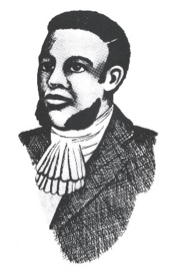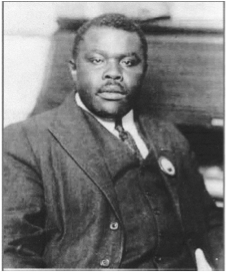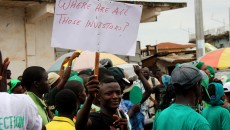Liberia has yet to regain its once proud stature on the continent, but Liberians can be assured that the contributions of their ancestors have made significant contributions to society, especially in the United States. On this last day of Black History Month, we celebrate Liberians who contributed to Black American history.
Great Liberian-Americans including psychiatrist Solomon Carter Fuller, M.D. — the first African-American psychiatrist in the United States — helped with critical research and teaching which fostered the discovery of what is now known as Alzheimer’s disease.
As one of only five foreign exchange research students selected by Alois Alzheimer to work in Munich, Germany at the University of Munich Psychiatric Hospital, Fuller’s research on pathology and neuropathy were instrumental in the discovery of Alzheimer’s.
Born in Monrovia, Liberia in 1872 to Americo-Liberian parents, Fuller migrated to the United States for college and began a career in psychiatry and research. In his honor, the Solomon Carter Fuller Mental Health Center is located in Boston, Massachusetts and in 1974 the Black Psychiatrists of America created the Solomon Carter Fuller program for aspiring black psychiatrists.
Not all of those who left an indelible imprint on the fabric of Liberian history were born in Liberia. The American missionary Lott Carey is often considered the first black “missionary†to Africa and an important figure in what is commonly referred to as the colonization of Liberia.
Carey was born in 1780 into slavery in rural Virginia. At the age of 33, he was able to purchase his freedom and that of his children. Not long after he bought his freedom in 1813, Carey became an ordained Baptist minister and a lay medical practitioner. By 1821, Carey had saved enough money to purchase the transportation for him and his family to travel to the “new colony†being founded in West Africa.
Once in Liberia, Carey founded the Monrovia’s historic Providence Baptist Church and a few years later in 1828, Carey was appointed an acting governor of Liberia. Today, Lott Carey has been recognized by the city of Richmond, Virginia with a “Carey Street†and a Carytown shopping district.
In Liberia, the city of Careysburg, located on the outskirts of Monrovia was named after Lott Carey. The well-known Lott Carey Mission School in Brewerville also bears his name.
History shows us that even a few of Liberia’s greatest supporters never actually set foot on African soil. Born in 1887 in Jamaica, West Indies, Marcus Mosiah Garvey Jr, was arguably one of the most vocal and influential proponents of the Pan-African “Back to Africa†movement.
He was one of the first black leaders who implanted notions of black self-sufficiency and independence in the post-slavery era. “Garvey-ism,†as it is referred to, had a special tie with Liberia, the black-ruled country colonized by free and freed African-Americans in the early nineteenth century and the primary objective of Garvey’s Back to Africa campaign. A few Garveyites independently immigrated to Liberia, but the grand United Nego Improvement Association colonization schemes all collapsed in the end.
While W.E.B Dubois and Garvey both took a serious interest in Liberia, it was Garvey who believed Liberia was the best location to reconnect Black Americans back with the Africa. He referred to this as the “Black Zion†in Africa which would cultivate a community that would be ideal for Negro advancement.
After extensive planning and consideration, Garvey realized the financial condition of Liberia was an opportunity to purchase land there for his repatriation effort. Garvey offered the Liberian government money in exchange for settlement of his people in Liberia. The land was to be included in five areas near the Cavalla River, Maryland County, Sinoe, Grand Bassa, and Cape Mount.
Unfortunately, due to what some historians refer to as a collaborated effort between the U.S. State Department and W.E.B. Dubois, the Liberian government ultimately refused to allow Garvey’s delegation into the country which all but completely derailed his plans for developing his “Black Zion.†Other historians highlight evidence which implicated Garvey in a plan to travel to Liberia with the primary purpose of making an attempt at overthrowing the government to seize power.
As all people of African descent take a moment this February to realize the contributions of our forefathers, Liberians and those devoted to her greatness in history have demonstrated a commitment to continuing to support Liberia in achieving its highest and best potential in Africa and the world.




